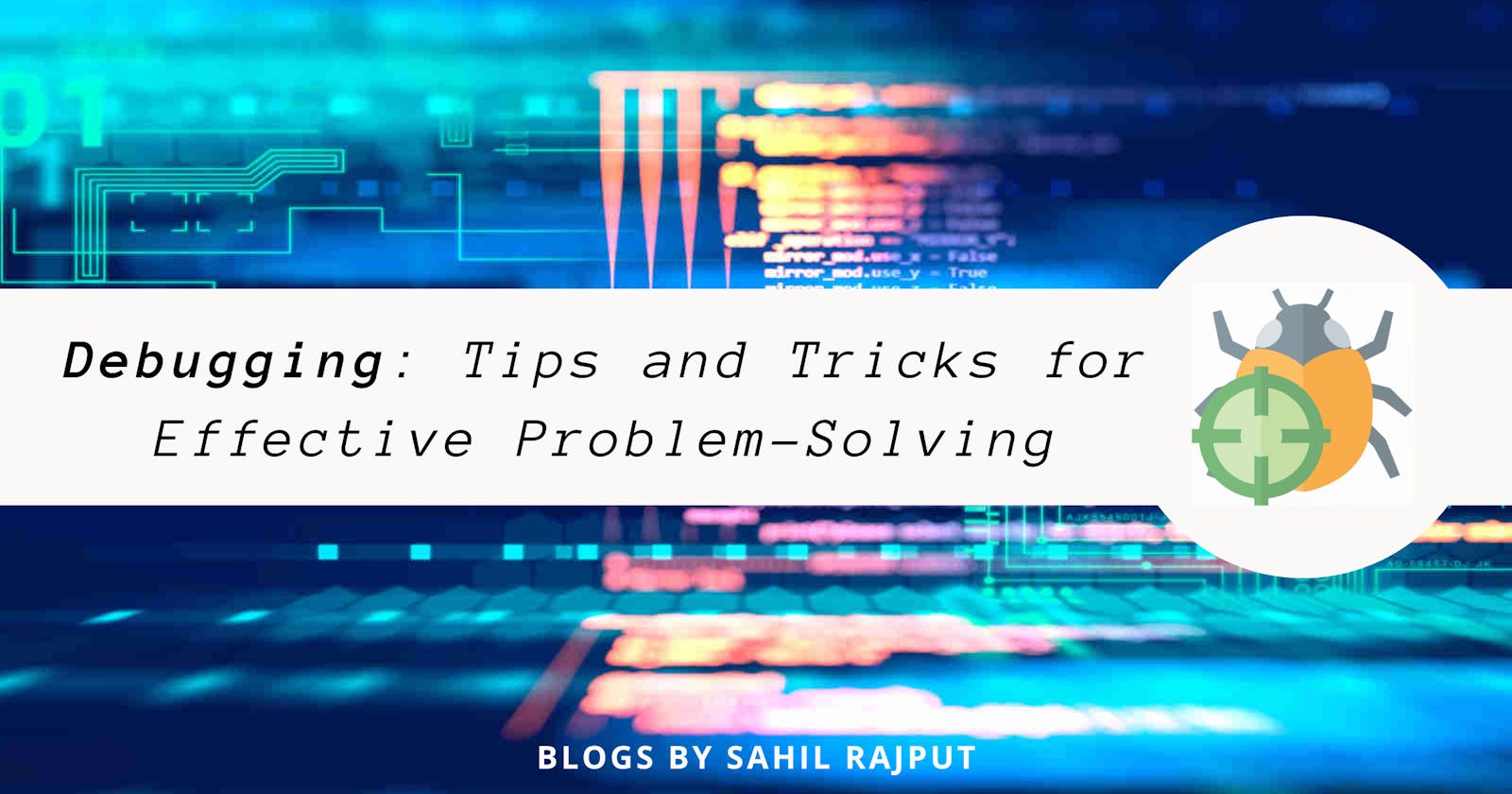Debugging is a very important part of software development. Debugging is the process of finding and fixing errors or bugs in the source code of any software.
When software does not work as expected, computer programmers study the code to determine why any errors occurred. They use debugging tools to run the software in a controlled environment, check the code step by step, and analyze and fix the issue.
No matter how careful any developer is, bugs can still find their way into code, and it's very essential part to know how to debug effectively.
In this blog, we will explore what debugging is, some common techniques for debugging, and some tips for effective debugging.
What is Debugging?
Debugging is the process of identifying and fixing problems in code. There are many reasons such as syntax errors, logical errors, runtime errors, and so on because of that why bugs can occur. Debugging is essential because errors in code can lead to program crashes, incorrect results, or security vulnerabilities.
Debugging Techniques
Here are some common techniques used in debugging:
Code Review: Code review involves a peer review of code, where other developers can review the code and provide feedback on potential issues. This can help catch errors before they become a problem.
Debugging Tools: Debugging tools such as IDEs (Integrated Development Environment), Debuggers, Profilers, and Loggers are powerful tools that can help identify and fix errors in code. These tools can provide detailed information about the program's behaviour, such as memory usage, CPU usage, and execution time.
Print Statements: This is one of the simplest and most effective ways to debug code. By adding print statements at various points in the code, you can check the values of variables, trace the execution flow, and see where the code is failing.
Logging: Most computer programs record internal data and other critical information like run time and operating system states in log files. Developers study log files to locate and resolve bugs. They also use tools like log analyzers to automate the processing of log files.
Tips for Effective Debugging
Here are some tips to help make debugging more effective:
Reproduce the Error: It's essential to be able to reproduce the error consistently to debug it, this will help to fix bugs effectively. Try to separate the part of the code that is causing the error and make sure you can reproduce the issue in a controlled/stage environment.
Break the Code into Smaller Parts: Breaking the code into smaller parts can make it easier to debug. By isolating specific sections of the code, you can narrow down where the error is occurring and focus on fixing that part of the code.
Use Version Control: Version control systems such as Git can be used to track changes in the code and help identify when a bug was introduced. With the help of these changes, it can be easier to identify where an error occurred and roll back to a previous version of the code if required.
Tips for preventing errors
While debugging is an essential part of coding, it is also important to take steps to prevent errors from occurring in the first place. Here are some tips to help you prevent errors:
Plan your code: Before writing any code, take the time to plan out your program and think about how you will implement it. This can help you identify potential errors and make it easier to write clean, organized code.
Use descriptive variable names: Using descriptive variable names can make your code easier to understand and help prevent errors caused by confusion or ambiguity.
Test your code: Testing your code regularly can help you identify errors early on and prevent them from causing bigger problems later. Use test cases to verify that your code works as expected and catch errors before they become a problem.
Document your code: Writing clear, concise comments in your code can make it easier to understand and maintain. Documenting your code can also help you identify errors by forcing you to think critically about each line of code and what it does.
Conclusion
Debugging is a crucial part of software development. Effective debugging can help identify and fix errors in code, leading to a more stable and secure application. By using a systematic approach, breaking the code into smaller parts, and using tools such as print statements and debugging tools, developers can debug code more efficiently.
Thank you for reading, I hope you found this article useful.
If you enjoyed reading, please consider following me here on Hashnode and also you can reach me at Twitter / GitHub / LinkedIn.
